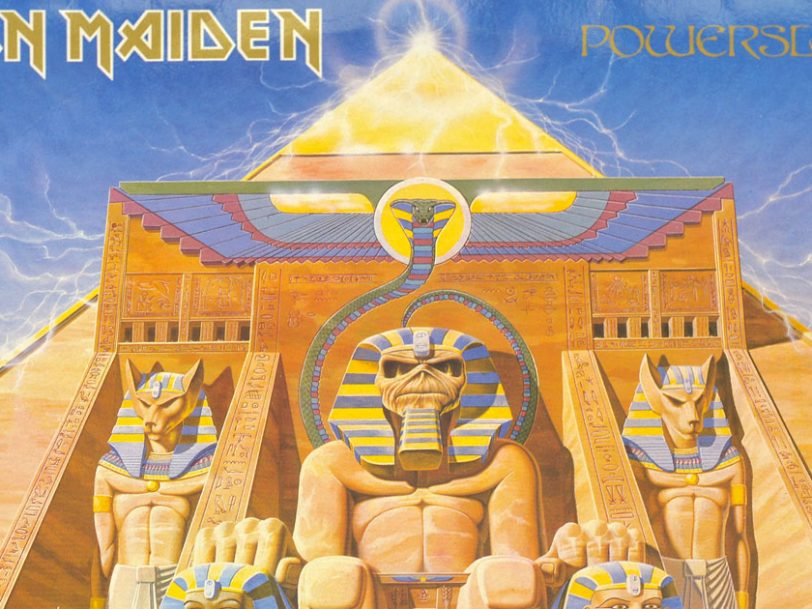The release and legacy: “We released a high-quality record”
Iron Maiden certainly put on a remarkable stage show for the subsequent World Slavery Tour, with props including gigantic sarcophagi and the band’s legendary mascot, Eddie, swaddled as a 30-foot-long Egyptian mummy. The extensive, 11-month trek took in a massive 189 shows, including the band’s first tour in what was then the Eastern Bloc and their first-ever South American show, at Brazil’s enormous Rock In Rio Festival.
However, the ambitious, widescreen music contained within Powerslave more than merited this lavish production, and it all caught the imagination of the wider public. Indeed, at the time of the album’s release, on 3 September 1984, Maiden’s profile was arguably at its highest, allowing Powerslave to speed up to No.2 in the UK. It later went gold in the UK and platinum in the US, and it remains one of Maiden’s key album releases to this day.
“I think this album is superior to the previous one,” Bruce Dickinson reflected in an interview with Metal Attack magazine at the time of Powerslave’s release. “We took what was best in [Piece Of Mind], while stressing the aggressive style of Number Of The Beast and we released a high-quality record, artistically speaking, of course!”
Find out which ‘Powerslave’ tracks rank among the best Iron Maiden songs.




